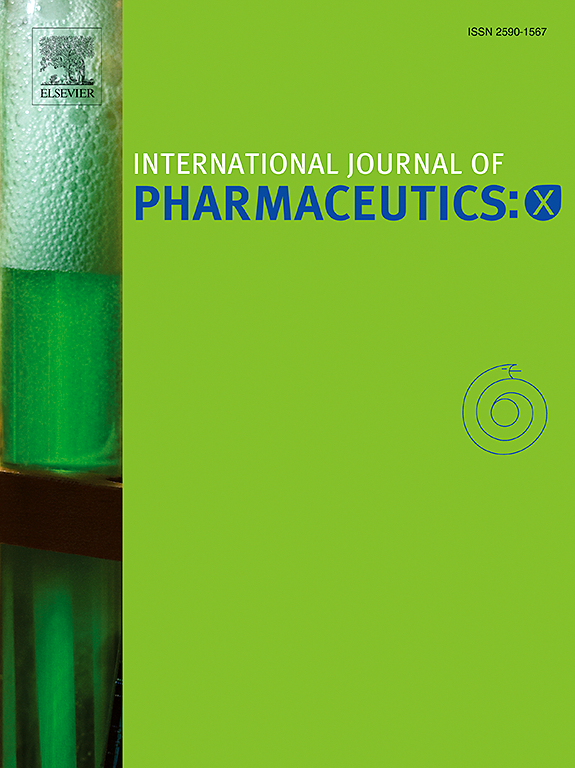Nanoparticle technologies in precision oncology and personalized vaccine development: Challenges and advances
IF 6.4
2区 医学
Q1 PHARMACOLOGY & PHARMACY
引用次数: 0
Abstract
Nanoparticles (NPs) are changing the paradigm of precision oncology by providing means for targeted delivery, immune modulation, and personalized therapies for patients. To this end, drug delivery systems (DDS) have improved the precision in precision medicine and improved the design, delivery, and targeting of immune interventions through the use of NPs. This review aims to address the most clinically relevant NP platforms, including lipid (LNPs), polymeric (PNPs), metal-based (MNPs), ceramic (CNPs), carbon-based (CBNs), aptamer conjugated (ANPs), and quantum dots (QDs), and reviewed as potential therapeutic and diagnostic applications and their utility in oncology. Further, we will touch on next-generation systems, including hybrid NPs (HNPs), stimulus-response NPs (SRNPs), and artificial-intelligence (AI) directed NPs (AI-NPs) that are programmable and adaptive with precision-engineered capabilities for cancer vaccinations and immunotherapy. We will discuss how NPs function as a DDS and how these systems facilitate controlled antigen release, better delivery to antigen-presenting cells, and the delivery of neoantigen-based immunotherapies. The ability of NPs to support cell-based therapies, including CAR-T cells, and help overcome multi-drug resistant (MDR) is also explored. Although obstacles remain regarding the development of scalable, safe, and regulatory approved therapies, the ongoing progress in the field of nanomedicine suggests new strategies enabling the delivery of efficient personalized anticancer therapies with clinical benefits for cancer patients.

纳米颗粒技术在精确肿瘤学和个性化疫苗开发中的应用:挑战和进展
纳米颗粒(NPs)通过为患者提供靶向递送、免疫调节和个性化治疗手段,正在改变精确肿瘤学的范式。为此,药物输送系统(DDS)提高了精准医疗的精确性,并通过使用NPs改善了免疫干预的设计、输送和靶向性。本文综述了临床最相关的NP平台,包括脂质(LNPs)、聚合物(PNPs)、金属基(MNPs)、陶瓷(CNPs)、碳基(CBNs)、适体偶联(ANPs)和量子点(QDs),并综述了它们在肿瘤学中的潜在治疗和诊断应用及其应用。此外,我们将涉及下一代系统,包括混合np (HNPs),刺激反应np (srnp)和人工智能(AI)指导的np (AI- np),这些系统可编程和自适应,具有用于癌症疫苗接种和免疫治疗的精确工程能力。我们将讨论NPs如何作为DDS发挥作用,以及这些系统如何促进受控抗原释放,更好地递送到抗原呈递细胞,以及递送基于新抗原的免疫疗法。NPs支持细胞疗法的能力,包括CAR-T细胞,并帮助克服多药耐药(MDR)也进行了探索。尽管在开发可扩展的、安全的、监管批准的治疗方法方面仍然存在障碍,但纳米医学领域的持续进展为癌症患者提供了有效的个性化抗癌治疗的新策略。
本文章由计算机程序翻译,如有差异,请以英文原文为准。
求助全文
约1分钟内获得全文
求助全文
来源期刊

International Journal of Pharmaceutics: X
Pharmacology, Toxicology and Pharmaceutics-Pharmaceutical Science
CiteScore
6.60
自引率
0.00%
发文量
32
审稿时长
24 days
期刊介绍:
International Journal of Pharmaceutics: X offers authors with high-quality research who want to publish in a gold open access journal the opportunity to make their work immediately, permanently, and freely accessible.
International Journal of Pharmaceutics: X authors will pay an article publishing charge (APC), have a choice of license options, and retain copyright. Please check the APC here. The journal is indexed in SCOPUS, PUBMED, PMC and DOAJ.
The International Journal of Pharmaceutics is the second most cited journal in the "Pharmacy & Pharmacology" category out of 358 journals, being the true home for pharmaceutical scientists concerned with the physical, chemical and biological properties of devices and delivery systems for drugs, vaccines and biologicals, including their design, manufacture and evaluation. This includes evaluation of the properties of drugs, excipients such as surfactants and polymers and novel materials. The journal has special sections on pharmaceutical nanotechnology and personalized medicines, and publishes research papers, reviews, commentaries and letters to the editor as well as special issues.
 求助内容:
求助内容: 应助结果提醒方式:
应助结果提醒方式:


